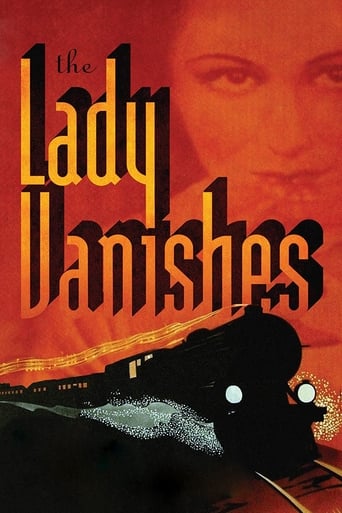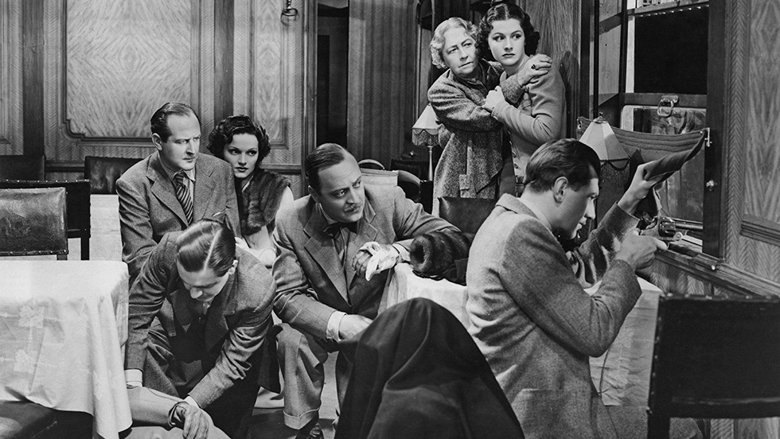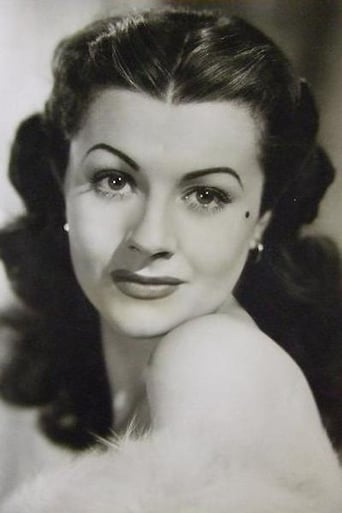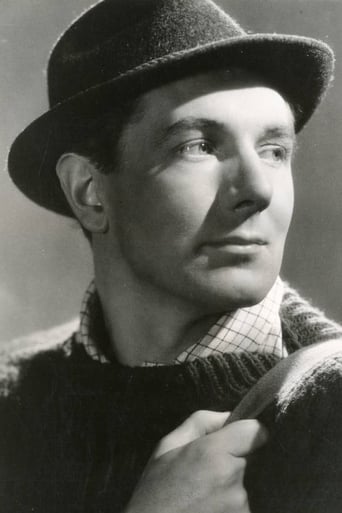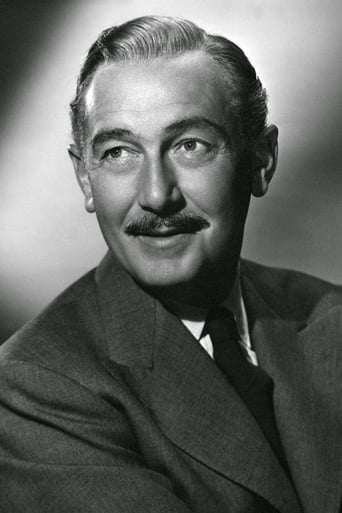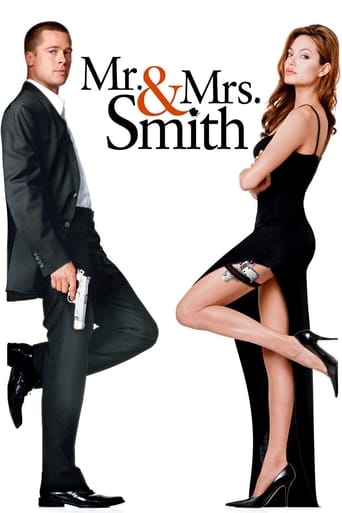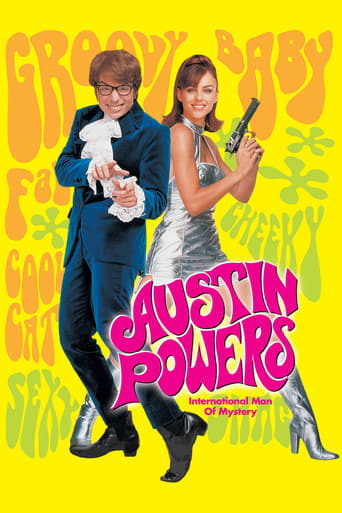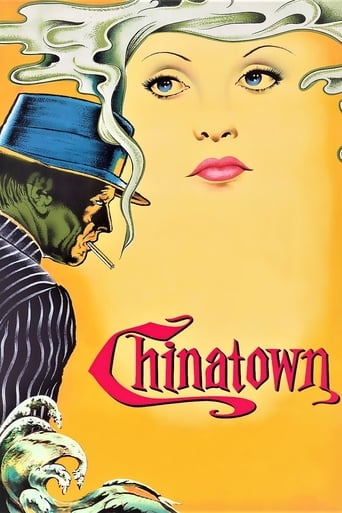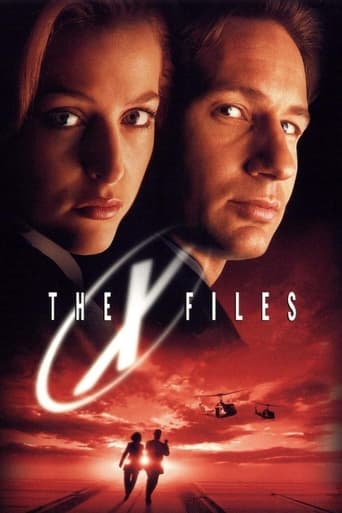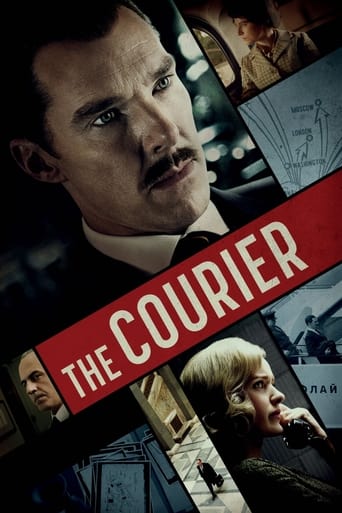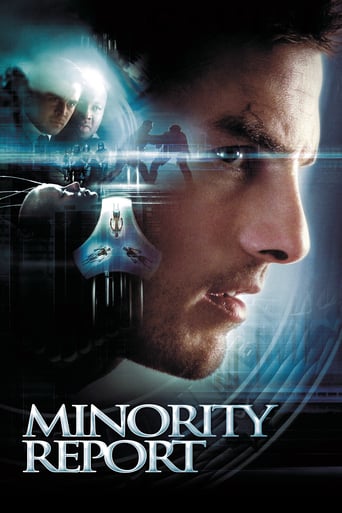The Lady Vanishes (1938)
On a train headed for England a group of travelers is delayed by an avalanche. Holed up in a hotel in a fictional European country, young Iris befriends elderly Miss Froy. When the train resumes, Iris suffers a bout of unconsciousness and wakes to find the old woman has disappeared. The other passengers ominously deny Miss Froy ever existed, so Iris begins to investigate with another traveler and, as the pair sleuth, romantic sparks fly.
Watch Trailer
Cast


Similar titles

Reviews
Imagine you're in a train, falling asleep and waking up to find out that your travelling companion has suddenly disappeared and none of the other passengers seems to recall his existence. Many times we're doubting our own certitudes, but what if we're sneakily lured into that doubt? How strong peer pressure can get to make us embrace a truth we hold for untrue? Hitchcock made many movies centering on conspiracies but they were all of political nature and we could identify both the villains and the implications of their lies. So do we in "The Lady Vanishes" but when even people who're obviously not part of the conspiracy have selfish reasons to deny the heroine's certitudes, you know you're dealing with cinematic treats only Chief Hitchcock can serve. Basically, he anticipates the plot-basis of "Gaslight" while transcending the classic "I swear it was here" cinematic trope.But "The Lady Vanishes" is also a pivotal moment in his career, it was its success, both critical (still considered one of his best) and commercial (at that time the most successful British film ever) that prompted Darryl O. Selznick to bring Hitchcock to the United States, firmly (and rightfully) believing that the director had a future in Hollywood. The rest is history, and the lighthearted but heavy-loaded train thriller was until the 70's Hitchcock' final British film.But did he know it?While it's very likely that he contemplated Hollywood conquest in 1938, he had barely conquered his countrymen. "Secret Agent" was forgettable, "Sabotage" was excellent but the story lived for the sake of its heart-pounding climax (that forged the director's reputation as a master of suspense) and "Young and Innocent" didn't have that level of sophisticated craftsmanship Hitchcock used to bring on-screen. These films were good, but inserted in a timeline starting with "39" and ending with "Vanishes", they could hardly be called high spots.But that makes the enthusiastic reception of the latter even more genuine and rewarding. Before quality, Hitchcock's prolificacy (one, sometimes two movies a year) was probably his best asset as he could never take a success for granted nor let a failure undermine his confidence. So, in 1938, he was finally given the right project, one with everything that could please the master starting with likable protagonists with motives of their own like in an Agatha Christie novel. Indeed, all these characters have their establishing moments in a first act that can work as a school case of exposition (and comedy).The film starts in a hotel in the kind of typical unnamed country that could have inspired Wes Anderson for his "Grand Budapest Hotel". An avalanche has blocked the railroad and customers are welcomed to stay for the night. The gallery of tourists is rather colorful, there are two British men, Caldicott and Charters, obviously obsessed with a cricket game they shall not miss by any chance, and are forced to share the servant's room, for some reason, their sharing the same bed was so incongruous for a 30s film it was hilarious. There's a group of three young socialites in a last tour over Europe, before their friend Iris (Margaret Lockwood) goes to London and marries some pre-arranged husband in London, there's Gilbert (a well-cast Flynn-like Michael Redgrave), a handsome expert in musicology who "plays musical chairs with elephants" at night, an anxious married man with his mistress and the lovable Mae Whitty as Mrs. Froy. She plays a retiring nurse going home to London and apparently eager to listen to a sweet ballad delivered in a serenade. So many things happen and so many are played for laughs that the potential plot devices or McGuffins might get overlooked, but they exist; you can bet on that.I think one of the mark of the great directors is that they make movies you want to watch twice, Hitchcock is even greater because he makes movies you've got to watch twice, not because they're complicated but because the delight is enhanced by the second viewing. There's a moment where the train whistles so loud a name must be written in the window, that detail will play a pivotal moment later. But then you'll notice Hitchcock's wicked sense of humor when it comes to the notions of appearing and vanishing. Hitchcock toys with our emotions in a rather claustrophobic and nightmarish situation where everything's against someone, yet sometimes, it's so desperate you've got to laugh.And Hitchcock seems to be in his territory when it comes to trains, like running metaphors of a plot heading to a destination, with villains likely to derail it or stop it. It also means that no one can leave it, so when you think about it, even the title has the right verb, creating a mystery within the mystery. It's not your "typical" detached thriller, Hitchcock even adds more density to his trademarks. Iris is a likable protagonist because she's not driven by a selfish motive, it's not about proving her innocence but rescuing a helpless person, actually, even villains are not deprived of human feelings.Speaking of villains, there's something interesting in the plot construction. When the revelation comes, the third act turns into a heart-pounding battle between fellow British men, all grouped in the restaurant at the time of tea, and foreigners. As a product of their time, Hitchcock movies from the 30s dealt with espionage and counter-espionage with worldwide war as a threat, but never has a historical value been so blatant and prophetic when one of the characters decided to wave a white flag, the Munich context and Churchill's quote about "dishonor and war" couldn't have had been a better illustration. "The Lady Vanishes" isn't just a wonderfully constructed thriller with fun screwball undertones, it's also a marker of talent and of time, and the best possible way for Hitchcock to end HIS time in Britain... but certainly not in the movies.
The Lady Vanishes is often imitated but never equalled. Many movies have done the "person vanishes but their accomplice finds out they apparently never existed" plot; but never has it been done as immaculately as The Lady Vanishes. Likewise train is the perfect cinematic device; there are an infinite amount of possibilities for scenarios based on trains and Hitchcock sure took advantage of this throughout his career.The Lady Vanishes is a movie with a great sense of adventure to it, travelling through the picturesque mountains of a politically unstable Europe. It's never identified what country the movie is set in, only that is "one of Europe's few undiscovered corners", letting the viewer's imagination fill in the blanks. I also love the charming miniature of the train station and hotel in the opening, making no attempt to disguise that is it just that, complete with little moving figures and a car driving with no one in it.Once the lady vanishes, is it a head scratcher, leaving me to hope this better have a dam good outcome and not cop out. The intensity ramps up to crazy levels as the mystery deepens with the atmosphere created by the train sound effects and the impending claustrophobia increases. On further viewings all the elements of the mystery make sense; the couple lying to avoid scandal, the cricket fans lying so they won't be late and the relevance of the serenading man, genius! My favourite scene in the move is the sequence in the cargo bay in which Redgrave and Lockwood investigate magic props and start doing impressions; it's such a fun scene to watch.The film's first act in the hotel could be a movie by itself; a sort of screwball comedy set in a hotel full of characters slightly off their rocker. Michael Redgrave reminds me and even looks like Errol Flynn here. Playing an adventurous free spirit and a character who could have come right out of a screwball comedy as evident by the manner in which he infiltrates Margaret Lockwood's room, creating a ruckus in order to "put on record for the benefit of mankind one of the lost folk dances of central Europe". Lockwood herself also plays an adventurous, free spirit ("been everywhere and done everything"), yet it takes the two of them some time to realise they have more in common with each other than they think./The two English gentlemen who talk about nothing but cricket on the other hand showcase the British turning a blind eye to the spread of fascism in Europe. They are the only two who would stand to another country's so called national anthem and dismiss a newspaper article on England being on the brink of war as sensationalism. On a lighter hearted note they even discuss how baseball is referred to as rounders in the UK in a still relevant joke ("Nothing but baseball you know. We used to call it rounders, children play it with a rubber ball and a stick"). Of course it wouldn't be an unashamedly British movie if someone did mention tea ("What you need if a good strong cup of tea").
The initial 20 minutes or so of Hitchcock's penultimate film made in UK is frolic where a bunch of passengers (mainly British) is trapped in a local hotel of the fictitious middle- Europe country Bandrika, due to an avalanche has blocked the railway line. Which is quite unusual since mystery and suspense is our knee-jerking reaction towards a vintage Hitchcock brand. But if you think it over after watching the entire movie, you will realise it is a neat conceit, not only does it imply the characteristics of its various players - e.g. proffering a plausible reason for the reaction of two key witness, the cricket enthusiasts Charters (Radford) and Caldicott (Wayne), when they are learned about the lady vanishes; it also excels in satirising the common foibles rooted deep in Britons, notably the married Mr. Todhunter (Parker) and his mistress-in-disguise-as-Ms. Todhunter (Travers), whose switch of testimony will be vividly delineated as an example that truth cannot always win over individual's self-serving reckonings. Also one key character is Miss Froy (Witty), soon will disappear in the train next morning, she is a courteous and amiable retired governess, one lingering big question is why she is the target? The real protagonists are actually an English lady Iris Henderson (Lockwood), who is going back to get married, and Gilbert (Redgrave in his screen debut), a young musician and writer, the two perfectly tallies with a good match started with dispute, she is a bit supercilious while he is very impetuous, but together, they will investigate the mysterious disappearance of Miss. Froy on the train, and a little romance is burgeoning as well.When a pair of unknown hands starts to strangle a man who is serenading under Miss Froy's room, the mystery kicks off (in hindsight, another brilliant plot device), and the next day, a premeditated murder attempt is accidentally foiled but it injures Iris and pairs her with Miss Froy, and then, after the disappearance occurs, the situation becomes more mythic and intriguing, those who clearly see Miss Froy before, all refuse to admit her existence, to the extent Iris begins to question her own rationality, thanks to a prestigious surgeon Dr. Hartz (Lukas) fanning the flames nearby. Eventually through Iris' indomitable persistence and Gilbert's aide, the conspiracy theory is debunking when a conscience- smote mole offers a helping hand (which is the most far-fetched part in the tale). And a final confrontation is a slick action stand-off, with a British-only invitation and gallows humour galore. Lockwood and Redgrave strike up charming chemistry in the fast-paced process of finding out the truth, Paul Lukas is viciously debonair as a heartless snake-in-the-grass, not to mention Dame May Witty, who is pleasantly radiant with her ingenuous facade where true grit lies. And its byproduct - Charters and Caldicott would expand their popularity in three other pictures made by different directors. Suspense, humour, mystery, romance, action, all can be found in Hitchcock's engagingly crafted homegrown piece, even its budget cannot match his later Hollywood fine arts, and certain props and settings are inconveniently discernible as miniatures and models, all the major constituents of Hitchcock-ian school is hearteningly fully-fledged at that stage. Like FOREIGN CORRESPONDENT (1940), the ending of THE LADY VANISHES also evokes the looming-large approach of WWII, and the secret agent trope becomes sought-after ever since in the cinema-scape.
Older Hitchcock film about tourist Lockwood discovering that an elderly traveling companion (Whitty) has mysteriously disappeared off the train they're riding in, with the majority of the other passengers denying that the old lady even existed, only to unravel a sinister scheme. Cricket enthusiasts Charter and Caldicott (Wayne and Radford) are the peak of the movie, and proved to be so popular at the time that they were featured in three other films. But for its era, THE LADY VANISHES is a somewhat underwhelming thriller in terms of a satisfactory conclusion. There are a couple of instances of odd fade-ins and fade-outs, plus some seemingly overelaborate development in the first act at the "Gasthof Petrus" inn in the fictitious country of Bandrika. Based on the 1936 novel The Wheel Spins by Ethel Lina White.**½ (out of four)

